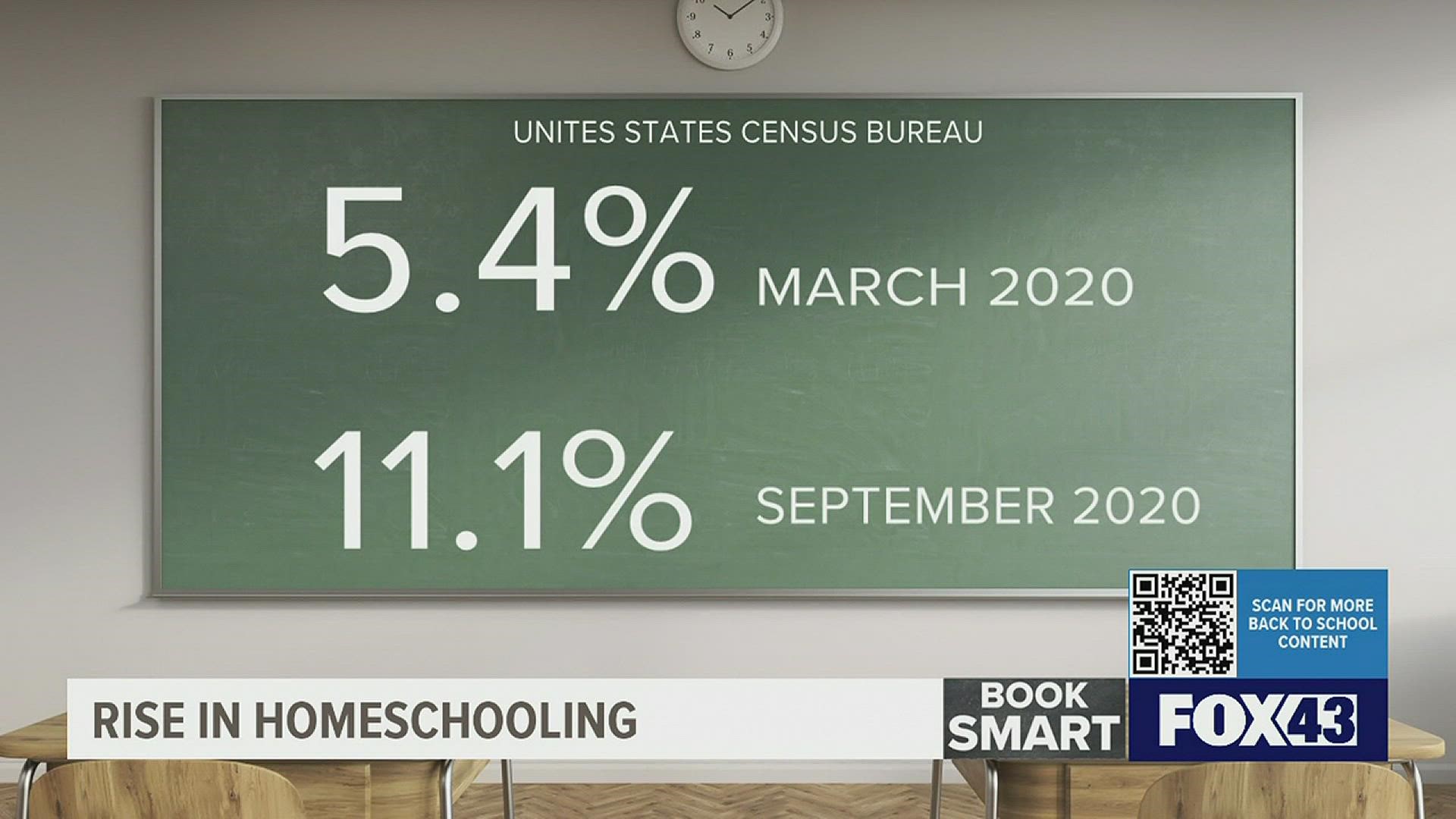PENNSYLVANIA, USA — When the COVID-19 shutdown in the United States started in March 2020, schools essentially had to go remote overnight. Students became virtual learners immediately.
Now, with almost every school set to reopen for in-person learning this fall, a growing number of parents are choosing to keep their kids learning at home.
Throughout the pandemic, virtual learning has been the safest option for both students and teachers. Full-time remote learning though, resulted in children spending days, sometimes even weeks at home, prompting some parents to take matters into their own hands.
The formation of so called "pandemic pods" became a rising trend, as a "do it yourself" approach to restarting students' academic progress and social lives after months of lockdowns and stay-at-home orders. In these small pods, families would group similar-aged children together and share curriculum and do activities together.
“We did accomplish the day-to-day activities that were assigned whether it be just counting exercises or arts and crafts or reading exercises and prompts," Ryan Montbleau, a former pandemic pod educator who worked with a group of preschool students and kindergarteners during the 2020-21 school year said. "But we would also pair that with just a lot of play time." He says that for students, one of biggest benefits of "pod education" was the social aspect of learning in a group.
“Being together, learning together, and not being at home alone during a pandemic," Montbleau explained.
The pods also served as a form of childcare desperately needed by some parents as they continued to work from home.
“They could still pursue their full-time jobs without having to interrupt their daily schedules, whether it be meetings or just regular work, by having to also facilitate their kid's education," he said.
While many of those parents are thrilled to return to in-person learning this fall, an increasing amount are continuing to look into homeschooling.
Nikki Warris is the owner of Elite Tutoring Specialists in Boca Raton, Florida. She says people are always looking for different options.
"They want a different option," she said. "They've seen a side that they don't like of other schools, of the school system in general, private and public."
According to data released by the Unites States Census Bureau, the number of households choosing to homeschool their children has nearly doubled, increasing from 5.4% in March 2020 when the pandemic began, to 11.1% in September 2020 at the start of last school year. That leap is a clear indication that parents were seeking solutions that would reliably meet their health and safety requirements, as well as their children's educational needs.
The same census bureau data shows homeschooling rates are increasing even faster across different race groups and ethnicities. In households where census respondents identified as Black or African American, the percentage of those homeschooling their children increased nearly five times from the end of the 2019 school year to the beginning of the 2020 school year, to more than 16%.

